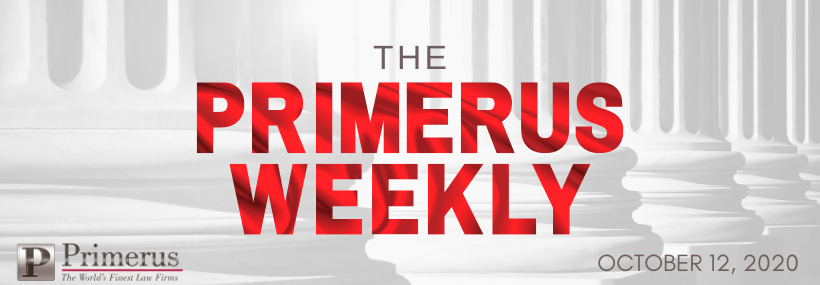
Does an Employer Have to Provide Leave to An Employee for Their Child’s Virtual Schooling?
By: Melissa Demorest LeDuc, Demorest Law Firm
Many employers and employees are facing an unusual and challenging situation this fall: how to balance virtual schooling (or daycare closures) with work. Earlier this year, Congress passed two pieces of legislation currently in effect through December 31, 2020: the Families First Coronavirus Response Act (“FFCRA”) and the Emergency Family and Medical Leave Expansion Act (“EFMLEA”). The FFCRA requires some employers to provide up to 80 hours of paid leave to employees who have coronavirus or have to quarantine due to exposure (or to care for a child whose school or daycare is closed due to COVID-19).
The EFMLEA expands on that protection and provides that all private sector employees (with less than 500 employees) have to provide an employee with up to 12 total weeks of paid leave if their child’s school or daycare is actually closed due to COVID-19.
What Qualifies?
If school or childcare is closed due to COVID-19, here’s how to analyze if an employee qualifies for EFMLEA leave:
- Must have been employed for at least 30 days
- If so, the employee can take leave to care for child(ren) if their school/daycare is closed due to COVID-19 related reasons, for up to 12 work weeks
- The school must be actually closed to in-person learning/care – the employee cannot get EFMLEA leave if the school is offering in-person learning and the employee has opted for virtual learning
- If the child is required to quarantine due to COVID-19 exposure, the employee should be eligible for leave for the quarantine period
- If the school offers a hybrid schedule, where the students attend in person on certain days and learn virtually on others, the employee would only be eligible for leave on the virtual learning days
- Initial 2 weeks paid under FFCRA (at 2/3 regular rate of pay); remaining 10 weeks paid by employer at 2/3 employee’s regular rate of pay (capped at $200/day or $10,000 total)
- Employer is required to continue employee’s health insurance
- This is also an additional qualifying condition under FMLA, so it reduces any FMLA leave they may have available
- Any employee who has already used 12 weeks FMLA leave in the past 12 months is not eligible to use EFMLEA
- Use of EFMLEA leave also reduces/exhausts whatever FMLA leave the employee may have available going forward in the 12-month period
Small Business Exception to FFCRA
- If the business has fewer than 50 employees, the business may self-qualify for an exemption to providing leave to care for a child whose school/childcare provider is closed. The business may be exempt from providing paid leave if the leave would jeopardize the small business in any of the following ways:
- Paying the employee for the leave would exceed available revenues, causing the business to cease operating; OR
- Employee’s absence would entail a substantial risk to the business, due to their unique skills or abilities; OR
- Employer does not have sufficient other employees to perform the work needed to continue operating
Alternatives
Besides providing leave under FFCRA and/or EFMLEA, whenever possible, the employee and employer should attempt to work out alternative schedules or other arrangements to allow the employee to continue working.
If you have additional questions, please contact the attorneys of Demorest Law Firm. We can help you draft policies and deal with specific situations. You can also reach out the Wage & Hour Division of the US Department of Labor:
Call local WHD office – 866-487-9243
www.dol.gov/agencies/whd/pandemic

